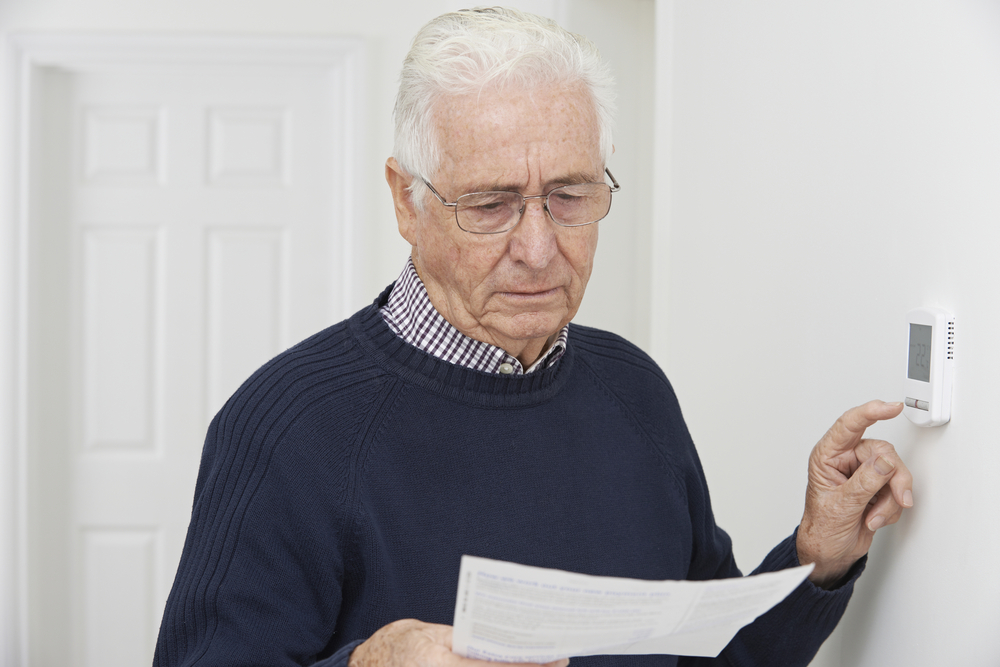Household Bills
Seven ways to get help with energy bills this winter

We knew today’s announcement was going to be painful, but it’s still a shock to the system. When this kicks in in October, millions of people will struggle to pay the bills.
The first of the universal cost of living payments will kick in from October, but the scale of the rise means a £400 boost is a drop in the ocean. It’s worth checking whether you could be entitled to any other help from your provider, the government or your council.
There are several schemes and they’re not all simple to navigate, so if you’re struggling, speak to charities who know the systems well – including Citizens Advice and Stepchange.
Given the scale of the price rises, if there’s nothing more forthcoming from the government, these schemes will be completely overwhelmed, and millions of people will fall behind on their bills.
The new Prime Minister is highly likely be forced to take action in order to help. We can only hope this will be announced sooner rather than later and put an end to the months of worry inflicted on people who have been wrestling with energy prices at their current levels – let alone with the rise.
Elsewhere around the world governments have responded with lump sum payments, harsher price caps and subsidies.
In the UK suggestions have ranged from cancelling taxes and levies on bills to freezing prices for longer and lending money to energy companies to spread the extra cost.
However, we will have to wait to see whether any of them get off the ground – and whether they do so to in time to ease the pain in October.
Seven ways to get help with energy bills this winter
Cost-of-living payments
The first payment for people on Universal Credit, Pension Credit and other means tested benefits was made in July. The second – of £324 – will be made in the autumn. The first of the payments for people on Tax Credits will be made in September. These will be automatic.
It’s worth checking whether you could qualify for even a small Universal Credit payment, because as long as you have a payment due during the qualifying period, you’ll also get the cost-of-living payment.
The £150 disability cost of living payment will be paid out from 20 September. Anyone who qualifies will receive the money automatically and most will do so by the start of October.
All households will also get £400 paid direct to their provider in instalments between October and March. Most people will get these automatically – although if you’re on a non-smart pre-payment meter you’ll get a voucher by text, email or post and you’ll have to redeem it.
The winter fuel payment
This year, a cost-of-living payment is being rolled up and paid with the winter fuel payment – which is paid to anyone over state pension age in November or December. The total you receive will depend on your age and living circumstances and will range from £250 to £600.
Grants
Your supplier may offer non-repayable grants to people suffering real financial difficulties. The major energy providers tend to offer them to their own customers – including EDF, E.on Next, Shell and Scottish Power. British Gas Energy Trust offers grants to people who are struggling – regardless of whether they are a British Gas customer. You need to contact them and check their eligibility rules and how to apply. The process can be onerous, so don’t be afraid to ask for help with it from charities like Stepchange and Citizens Advice.
Warm home discount
This is a £150 rebate paid by suppliers at some point between October and Match. If you’re eligible, and your provider is part of the scheme, you will usually receive it automatically now in England and Wales. You’ll qualify if you’re on pensions credit or on specific benefits and have high energy costs. In Scotland those on pensions credit should get it automatically, but others on specific benefits may need to apply.
Cold weather payments
In England and Wales, older people and those on specific benefits will get £25 for each seven day period between November and the end of March that the average temperature is below freezing. In Scotland this has been replaced by a £50 on-off payment made to everyone who qualifies in February, regardless of how low the temperature gets.
Your council
The Household Support scheme in England is available from your local council and is designed to help people in really desperate circumstances. They will have specific criteria and an application process, so get in touch and ask.
Your energy supplier
If you don’t qualify for help, and you’re struggling to pay your bills, contact your provider sooner rather than later. Ofgem rules mean they have to offer a number of potential options to help you pay – including an affordable payment plan, payment reductions or time to pay. It’s worth doing what you can to come to an agreement with them, because your provider can move you to a repayment meter if you don’t.
However, if after talking things through with them you can’t see how you can pay, you can contact a debt charity like StepChange or Citizens Advice and they can work with you to find a way through it.
Sarah Coles is senior personal finance analyst at Hargreaves Lansdown